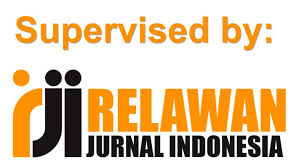Sistem Pesantren Yang Telah Diterapkan Di Kalangan Pondok Pesantren Yang Sudah Ada Di Indonesia
DOI:
https://doi.org/10.37092/ej.v7i1.857Keywords:
system Boarding school appliedAbstract
Islamic boarding schools are among the oldest Islamic educational establishments in Indonesia; they are found in many towns, particularly in the countryside. Initially, Islamic boarding schools stressed the role of moral principles in society and taught the Islamic faith as a life guide (tafaqquh fi al-din). (Mastuhu, 1994). It is estimated that the majority of Indonesia's Muslim population attended Islamic boarding schools when they were founded 300–400 years ago, particularly in Java (Religion, 1984/1985). Following Indonesia's independence, pesantren education grew increasingly regimented and its curriculum more set, particularly during the New Order transition and the country's rapid economic expansion. For instance, Islamic boarding schools use a dual curriculum—that is, the Ministry of National Education curriculum and the Ministry of Religion curriculum—to provide a religious education in addition to normal topics.
Islamic boarding schools are among the oldest Islamic educational establishments in Indonesia; they are found in many towns, particularly in the countryside. Initially, Islamic boarding schools stressed the role of moral principles in society and taught the Islamic faith as a life guide (tafaqquh fi al-din). (Mastuhu, 1994). It is estimated that the majority of Indonesia's Muslim population attended Islamic boarding schools when they were founded 300–400 years ago, particularly in Java (Religion, 1984/1985). Following Indonesia's independence, pesantren education grew increasingly regimented and its curriculum more set, particularly during the New Order transition and the country's rapid economic expansion. For instance, Islamic boarding schools use a dual curriculum—that is, the Ministry of National Education curriculum and the Ministry of Religion curriculum—to provide a religious education in addition to normal topics.
Islamic boarding schools are among the oldest Islamic educational establishments in Indonesia; they are found in many towns, particularly in the countryside. Initially, Islamic boarding schools stressed the role of moral principles in society and taught the Islamic faith as a life guide (tafaqquh fi al-din). (Mastuhu, 1994). It is estimated that the majority of Indonesia's Muslim population attended Islamic boarding schools when they were founded 300–400 years ago, particularly in Java (Religion, 1984/1985). Following Indonesia's independence, pesantren education grew increasingly regimented and its curriculum more set, particularly during the New Order transition and the country's rapid economic expansion. For instance, Islamic boarding schools use a dual curriculum—that is, the Ministry of National Education curriculum and the Ministry of Religion curriculum—to provide a religious education in addition to normal topics.











